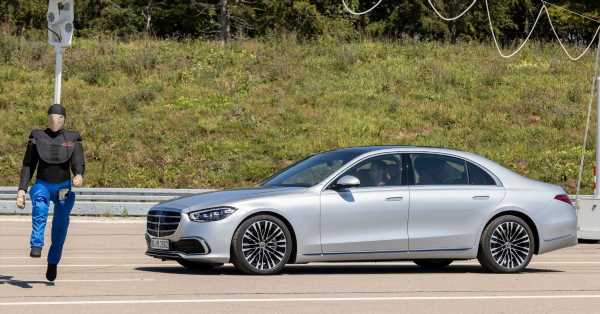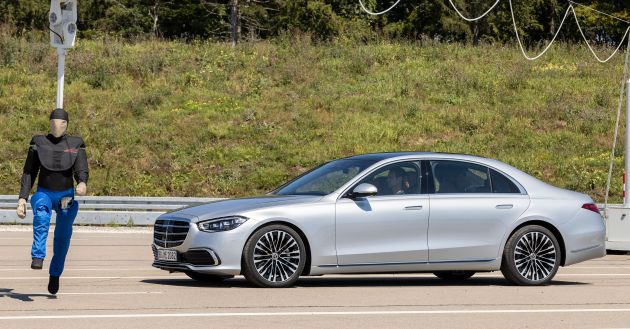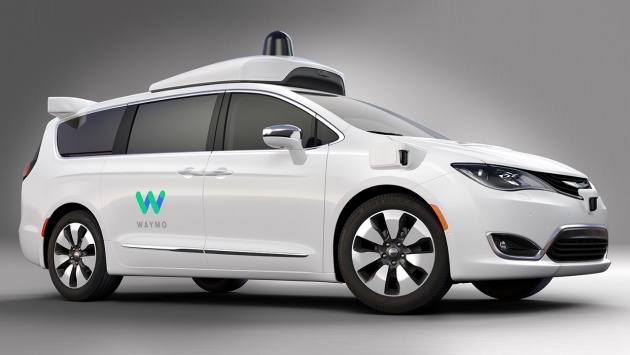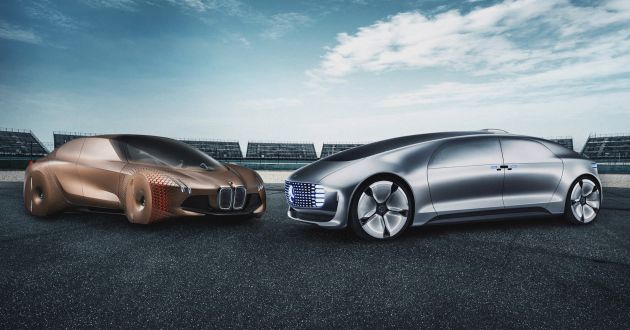Mercedes-Benz is planning to pull back from the race towards fully autonomous driving for public use, Redaktions Netzwerk Deutchsland (RND) reported. This is in reference to Level 5 autonomous driving that does not require any driver input, while the lower levels of partial automation, such as the Level 3 capability of the W223 Mercedes-Benz S-Class, will continue to be developed upon.
“We don’t compete in any race that we can no longer win,” a Mercedes-Benz spokesperson told the German news outlet. This was possibly in reference to the approach taken by the F015 Luxury In Motion concept vehicle, which was intended for fully autonomous use and demonstrated in 2015 at a former air station outside San Francisco, California.
The German automaker also demonstrated its autonomous capabilities in a more conventionally recognisable vehicle with the W222-generation S 500 Intelligent Drive, which retraced the circa-100 km route taken by Bertha Benz, wife of Karl Benz, on the world’s first long-distance drive aboard the Benz Patent-Motorwagen.
More recently, Mercedes-Benz has teamed up with traditional rival BMW for the development of autonomous vehicles in 2019, with the initial focus on systems and features for up to Level 4 autonomous operations. In July this year, Waymo and FCA announced their collaboration for the development of Level 4 autonomous driving, and Waymo released the first unmanned robo-taxis in Pheonix, Arizona last month.
Despite the introduction of Level 4 capability for automated valet parking at Stuttgart Airport with the W223 S-Class via Intelligent Park Pilot, according to Robotics and Automation News, the German automaker is moving away from developing fully automated mobility services.
“The [company’s] conversion to a mobility provider is thing of the past. We will move away from its again,” said Daimler and Mercedes-Benz chairman Ola Kallenius. There isn’t enough money to be made from car sharing programmes, Kallenius said, and the company’s investors expect not just sales, but profit as well, he added.
The aforementioned mobility technology collaboration with BMW was also short-lived, and was terminated upon mutual agreement, according to RND. The very large development costs were to be shared between the two German automakers, however it has emerged that a business model could not be made from it “in the next few years,” it said. According to Kallenius, the software was a great point of contention.
While the approaches taken by German automakers and American technology firms may have appeared at first to be similar, Kallenius noted that there is actually a big difference. “Waymo consists of IT specialists who don’t care which brand or model they transplant their software into. In Stuttgart, the focus will now be on [more traditional] values: we want to build desirable cars,” he said.
That goal will be achieved by placing renewed focus on the profitable luxury segment, where Daimler’s sharp end of the matter is represented by its Maybach and AMG sub-brands. Advanced driver assistance systems (ADAS) will continue to play a central role, RND observes, and while full Level 5 autonomy appears to be off the table for Mercedes-Benz, there is still development in the more driver-interactive levels below that.
The automaker is working with systems and components provider Bosch to develop and test software at Level 4 operation, said a Mercedes-Benz spokesperson. “In our research and development in the field of automated driving, we focus on areas that are associated with specific customer benefits,” she said.
It appears that German consumers still prefer hands-on motoring. According to the report, a survey by AutoScout24 found that many would rather take the wheel of the vehicle themselves, and not cede control to autonomous systems, and many among the surveyed fear that the fun of driving will be lost in this process.
On improving profitability, Mercedes-Benz will reduce fixed costs by more than 20% by 2025 compared to the 2019 baseline through reduced spending, capacity adjustments and lower personnel costs, it said in its strategy update at the beginning of October. Capex and R&D expenditure are also set to decrease by more than 20% by 2025 compared to 2019, while variable costs will be reduced by 1% per annum until 2025.
Research Mercedes-Benz Cars at
Related Cars for Sale on
Source: Read Full Article




















































